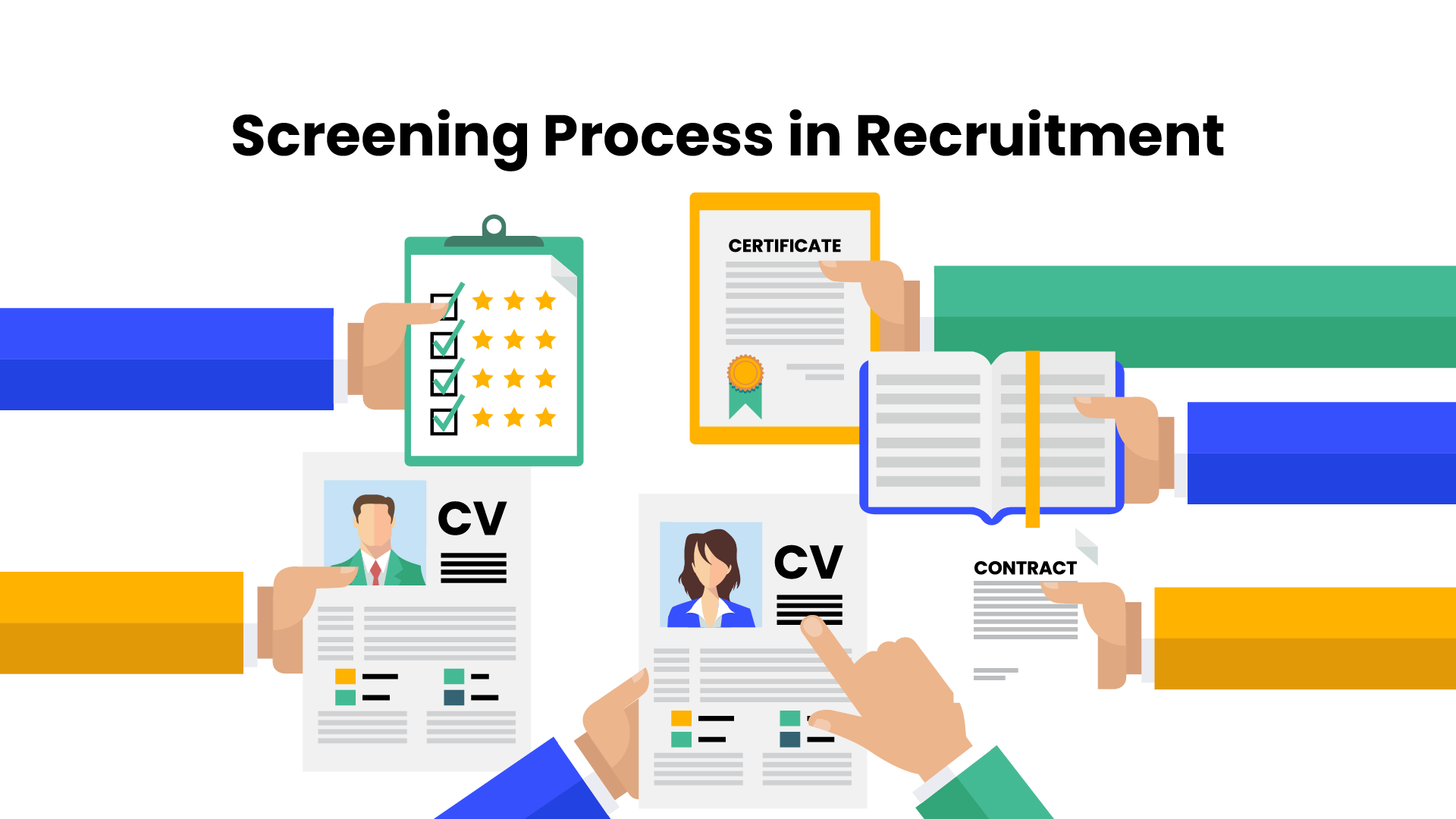
Learn the five most common screening methods, why they matter, and how the right tools help teams hire faster with clearer decisions.

Traditional hiring often takes more time and money than expected. Teams spend hours coordinating schedules, reviewing resumes, and repeating the same screening calls. These delays raise costs and increase the risk of losing good candidates.
To overcome these challenges, many organizations are turning to asynchronous video interview platforms. These tools streamline the early stages of recruitment, offering flexibility for both candidates and hiring teams while reducing operational burdens.
In this article, we’ll highlight the top 5 asynchronous video interview platforms popular among Singaporean companies, and show how each can help save time, cut costs, and improve the overall hiring experience.
Asynchronous video interviewing is a method where candidates record their answers to prepared questions at their own time. Recruiters review the recordings later when it suits their schedule. The process takes place without direct interaction between the two sides.
The setup is simple. A recruiter creates a set of questions and shares a link with the candidate. The candidate then records short video responses using a phone or computer, which often within a set time for each answer.
This approach brings several advantages. It saves time for recruiters and candidates, gives flexibility in scheduling, and helps reduce hiring costs. At the same time, it allows recruiters to review and compare responses more consistently.
See also: A Comprehensive Guide to the Types of Interviews
The demand for flexible hiring methods has been rising across industries in Singapore. Companies are looking for tools that can match the pace of remote work, support faster decision making, and bring down overall costs.
Remote recruitment has grown quickly in Singapore and asynchronous video tools are part of that shift. Around 23% of the workforce now works fully remote, and 83% of employers say finding skilled workers is a challenge. With hiring spread across different locations, these platforms are now common in the market.
Companies also value the efficiency of video-based screening. The latest research shows that 82% of employers already use video interviews, and 93% plan to continue. Statistics show that hiring cycles can be reduced by up to 75% with this format.
The financial benefits are also clear. Removing travel, meeting rooms, and repeated scheduling lowers recruitment costs. Reports indicate a 68% reduction in expenses when companies switch to video platforms.
See also: One-Way Interview: Everything You Need to Know
Now let’s look at the platforms that provide these services. Before going into the details of each one, here is a quick overview in the table below.
Now that you have seen a quick side-by-side view of the main features and pricing, it’s worth taking a closer look at each platform. Let’s go through them one by one.
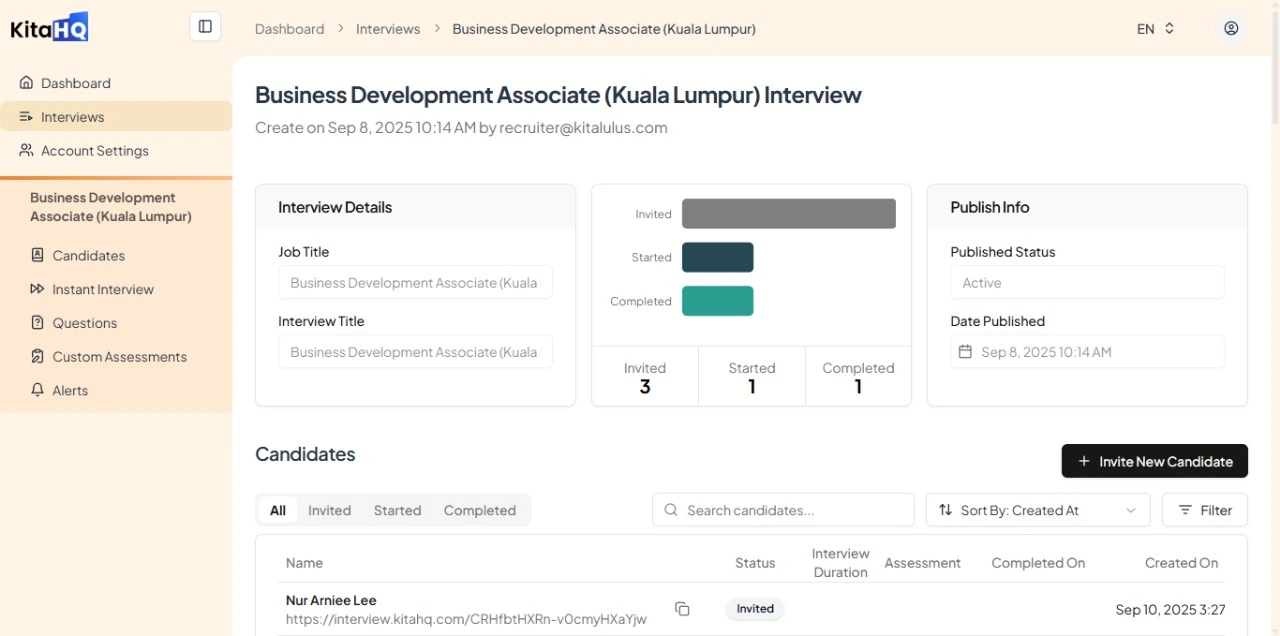
Overview:
Among the top asynchronous video interview platforms in Singapore, KitaHQ stands out for its fully automated, AI-driven approach to candidate screening and assessment. Designed to help HR teams work smarter, KitaHQ allows companies to interview and evaluate candidates up to 10× faster without compromising on fairness or accuracy.
KitaHQ also supports multilingual hiring with availability in English, Bahasa Indonesia, and Malay. This language support makes the platform particularly well suited for Singapore and neighboring regions.
What further strengthens its appeal in Singapore is compliance with the country’s Personal Data Protection Act (PDPA). The platform secures candidate data, including video recordings and transcripts, with strict safeguards to ensure privacy and fairness.
Pricing:
Key Features:
Limitations:
Best for:
KitaHQ fits all business sizes. The Launch plan works for small teams and startups. The Scale plan is suitable for mid-sized and growing companies. The Team plan is built for large organizations and enterprises.
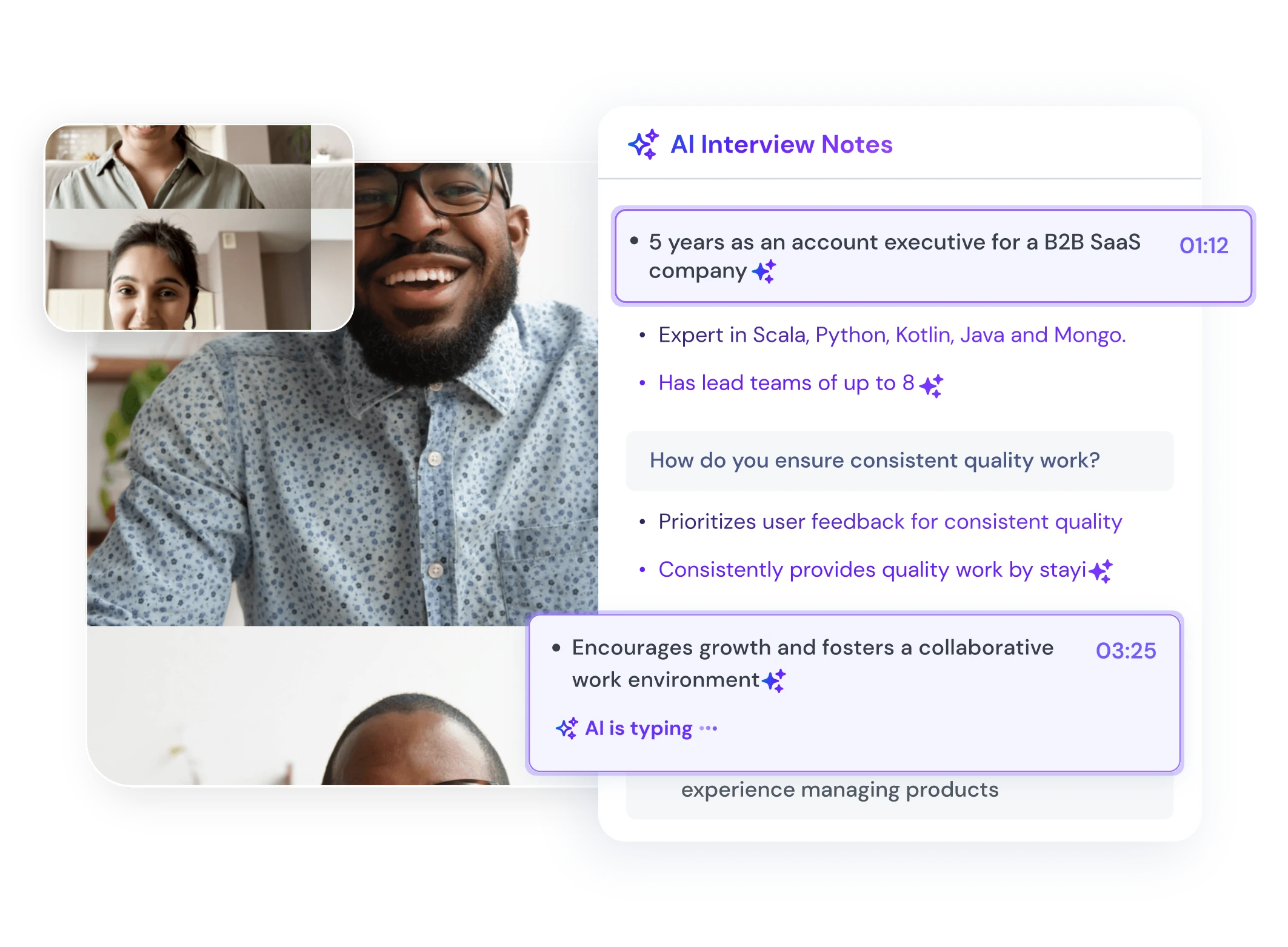
Overview:
BrightHire brands itself as an Interview Intelligence platform built to elevate company hiring quality. It is known for its AI tools that capture transcripts, create notes, and give live guidance during video interviews. The platform is easy to use, with structured interview plans that make it simpler for teams to work together.
Pricing:
Offered in plans like “Recruiters”, “Teams”, and “Enterprises”. All pricing details are available upon request.
Key Features:
Limitations:
Best for:
Small, medium, and large companies.
See also: What is Candidate Experience and How to Improve It
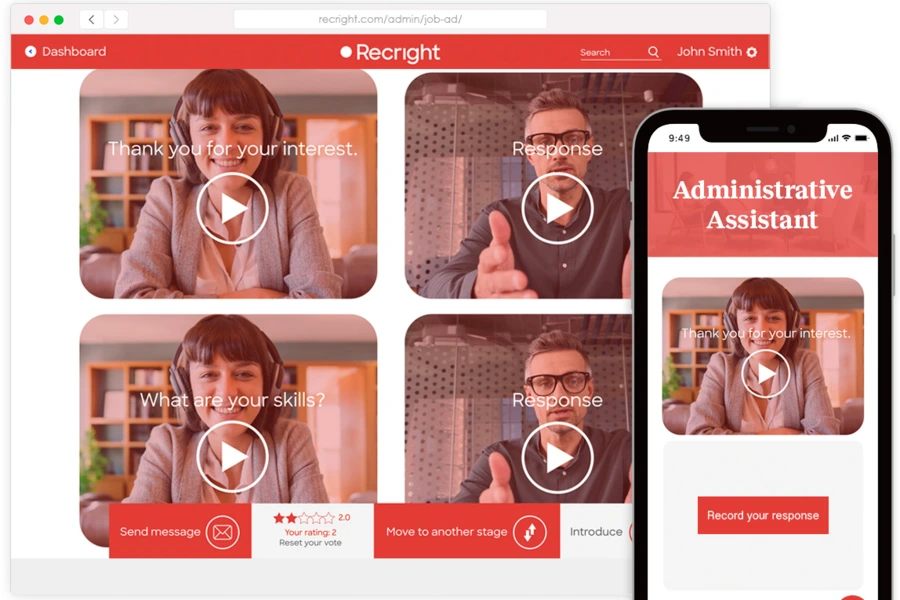
Overview:
Recright is a video interview tool that lets recruiters watch pre-recorded answers and get a better sense of candidates beyond written applications. The system is easy to use for both recruiters and applicants, and it allows teams to share feedback in one place.
It also connects with applicant tracking systems and supports the full hiring process, making it suitable for companies of different sizes.
Key Features:
Limitations:
Best for:
Small businesses and startups, mid-market companies, larger firms and enterprises.
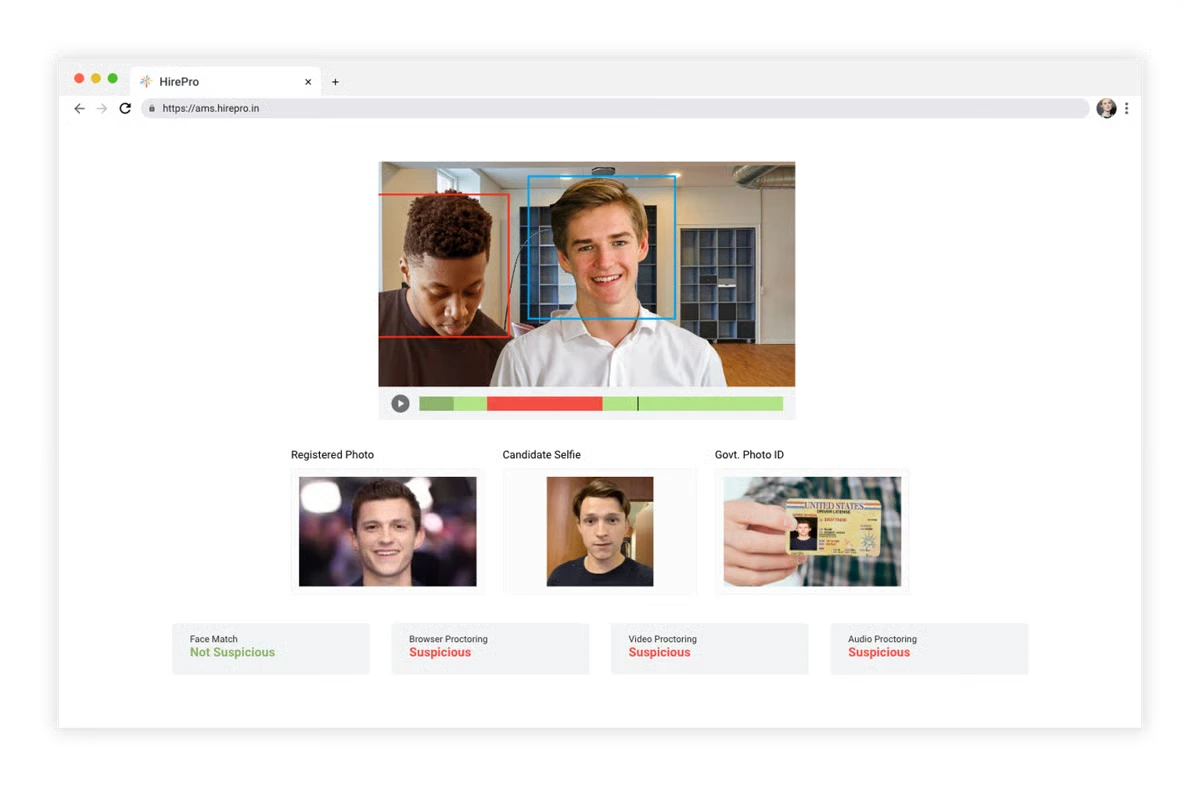
Overview:
HirePro is an AI-powered hiring platform that streamlines recruitment with solutions like video interviews, online assessments, coding tests, and campus hiring automation. Employers value its reliable video quality, easy-to-use interface, and advanced tools such as live coding, screen sharing, and AI-driven identity verification, which help ensure fair and accurate evaluations.
Key Features:
Limitations:
Best for:
Small businesses, mid-size businesses, large enterprises (large companies)
See also: 5 AI Recruiting Software for Singapore Recruiter Productivity 2025
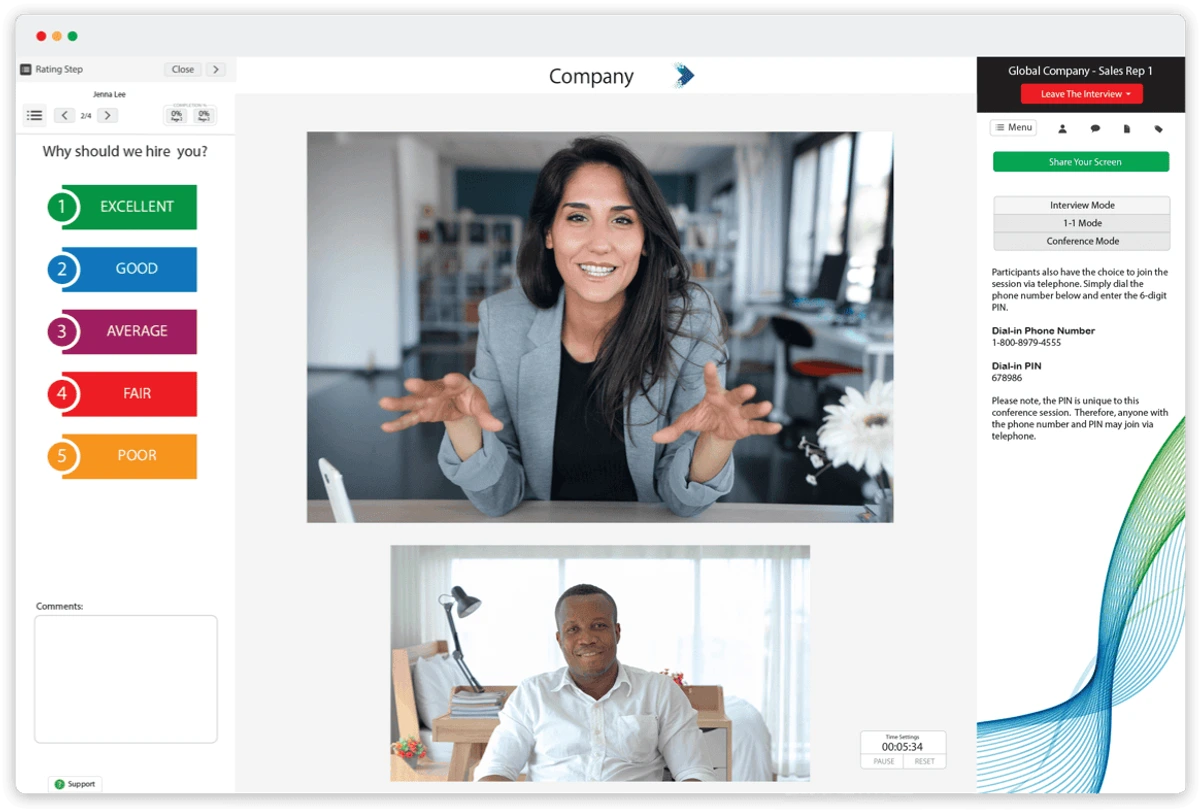
Overview:
VidCruiter is a flexible and highly customizable video recruiting platform that offers both live and pre-recorded interviewing which make it ideal for high-volume and structured hiring workflows. Users highlight its intuitive interface, structured templates, and seamless scheduling as major time-savers.
Key Features:
Limitations:
Best for:
Mid to large-sized organizations.
Asynchronous video interview tools bring speed, flexibility, and fairness to recruitment. On the candidate’s side, they can record answers at a time that suits them, while on the recruiter’s side, they can review at their own pace with structured evaluations that reduce scheduling conflicts.
Among the choices available, KitaHQ stands out for the way it blends advanced technology with a straightforward hiring experience. It is designed to remove delays, keep evaluations consistent, and support hiring teams whether they are running a few interviews or thousands.
By offering a solution that adapts to different business needs and scales with growth, KitaHQ gives organizations a modern path to connect with strong candidates and make confident hiring decisions. Book a demo today to see how it can transform your hiring process.
Asynchronous video interviews let recruiters share a set of questions with candidates, who then record their responses at a time that works best for them. Recruiters can review the videos later and use scorecards to compare answers fairly. This format saves time, reduces scheduling issues, and makes it easier to evaluate large applicant pools.
Yes. Each candidate receives the same questions and the same time to answer, which creates a more consistent experience compared to unstructured phone screenings. This approach reduces bias and gives candidates flexibility to respond when they feel prepared.
Video interview platforms remove the need for in-person meetings, making it easier to connect with talent across locations and time zones. Candidates can take part without travel, and recruiters can build larger pipelines of qualified applicants worldwide.
KitaHQ goes further by offering multilingual support and AI-driven tools that make the process smoother for both recruiters and candidates.
To ensure data privacy and compliance, trusted hiring technologies like video interview software must meet recognized data protection standards. In Singapore, the Personal Data Protection Act (PDPA) establishes clear obligations on how personal data is collected, used, and safeguarded.
KitaHQ, which is headquartered in Singapore, is PDPA-compliant and employs secure hosting, encryption, and access controls to protect candidate information. PDPA compliance ensures that Singaporean organizations can adopt KitaHQ with confidence in its legal and security standards.
Fairness comes from structure. Using standardized questions, time limits, and scorecards helps recruiters focus on the content of each answer rather than outside factors. Many platforms also provide transcripts and reporting features that make evaluations more consistent across the hiring team.
KitaHQ takes this seriously by automatically creating interview questions from job descriptions. Each session produces transcripts, scores, and summaries that make it easier to compare candidates side by side. With these tools, recruiters can maintain consistency and reduce bias for fairer evaluations.